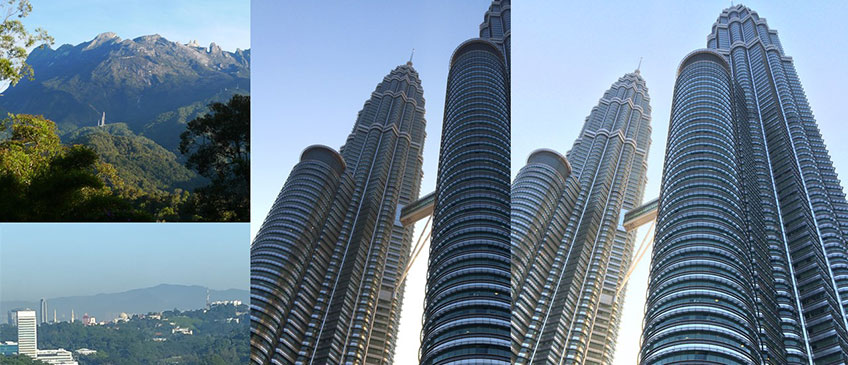
Kuala Lumpur International Seminar on United Nations Global Geospatial Information Management
Kuala Lumpur, Malaysia- 20 June 2019
In conjunction with the fourth expert consultation and meeting on the development of the Implementation Guide of the United Nations Integrated Geospatial Information Framework, the UN Secretariat for Global Geospatial Information Management, the Department of Survey and Mapping, Ministry of Water, Lands and Natural Resources Malaysia and the Royal Institution of Surveyors Malaysia organized this one-day International Seminar to share knowledge and raise awareness on the Integrated Geospatial Information Framework and it's the Implementation Guide as a basis, a reference and a mechanism for country-level activities to establish, strengthen and organize geospatial information management arrangements nationally or sub-nationally.
There were approximately 460 national, regional and international participants at this one-day international seminar that delivered considerable awareness and understanding of the importance of reliable, timely and quality information coupled with positional and temporal context for evidence-based policies and programmes nationally and sub-nationally including at the project and community level. The international seminar reinforced the discussions at the expert consultation and meeting - that advocacy and raising awareness, communicating the value and significance of geospatial information management is crucial. Of particular note was recognition of the Integrated Geospatial Information Framework as a mechanism to elevate the message, the perspectives, the value proposition for growing political knowledge and understanding in integrated geospatial information management.
The Kuala Lumpur International Seminar was officiated by the Minister of Water, Lands and Natural Resources Malaysia, Honorable Dr. Xavier Jayakumar. The Honorable Minister noted:
"As the contribution of geospatial information in decision-making increases, maintaining trust and confidence in the information being used will be vital and will continue to form a critical part of the role of the government. I also believe the government must play the role in driving and supporting cross-sector collaboration for reliable and timely data and information for evidence-based responses. Effective collaboration within the surveying disciplines, improving interoperability and integration between geospatial and other disciplines such as statistics and the private sector and scientific and research community. The lack of such collaboration will hamper the timeliness of evidence-based responses.
The Integrated Geospatial Information Framework adopted by the Committee of Experts on Global Geospatial Information Management, a subsidiary body of the Economic and Social Council of the United Nations is most timely. The Government of Malaysia commends the United Nations Secretariat, the World Bank and the many actors within the Committee of Experts for this important effort and look forward to the practical guidance being developed. This Framework will similarly provide the basis, reference and mechanism for Malaysia to develop its integrated location-based information management, to deliver our nation building and sustainable development priorities. Malaysia wishes to improve its services to citizens and communities, improve capacity to deploy location-based services, enhance informed policy and decision-making processes, and timely evidence-based responses."
Documentation
- Annotated Agenda
- Official Opening Address
- Honorable Dr. Xavier Jayakumar, Minister of Water, Lands and Natural Resources Malaysia
- Towards evidence-based policies, decisions and programmes for the wellbeing of people, planet, prosperity and peace
- Mr. Greg Scott, UN Secretariat, Global Geospatial Information Management
Presentation Materials
-
Keynote presentation
-
Presentations
- Reaping the digital dividend - key issues, challenges and potential for the Malaysian economy
- Prof. Yeah Kim Leng, Sunway University School of Business, Malaysia
- Sustaining the digital economy with reliable, timely and quality natural and built environment information
- Mr. John Kedar, Ordnance Survey United Kingdom
- "Data is the new oil" - integrated geospatial information framework for the digital economy
- Dr. Lesley Arnold, Geospatial Frameworks, Australia
- Towards smart cities enablement in Malaysia
- Mr. Chan Keat Lim, Department of Survey and Mapping Malaysia
- Positioning ourselves for the future
- Dr. Andrew Barnicoat, Positioning & Community Safety Division, Geoscience Australia
- Smart partnerships and innovation for smart, resilient and sustainable societies
- Mr. Sanjay Kumar, World Geospatial Information Council
- Integrating and re-purposing information systems and infrastructures for the future we want
- Mr. Timothy Trainor, Tim Trainor Consultants, United States of America
- Role of integrated geospatial information management for the digital economy and smart communities
- Prof. Hasanuddin Zainal Abidin, Geospatial Information Agency, Indonesia
- Leading stories in the age of emotional intelligence
- Prof. Mushtak Al-Atabi, Herriot Watt University, Malaysia
Annual sessions
- Fifteenth session
- Fourteenth session
- Thirteenth session
- Twelfth session
- Eleventh session
- Past sessions
